-
What it Takes to Launch a Winning Product to the Marketplace
Launching an online product is something that fills most marketers with a combination of anxiety and excitement. This day has the ability to satisfy you, disappoint you or leave you wondering what went wrong. It can be quite disheartening to invest your time and money into a project and have it flop on launch day. It`s best to forget about the past (except when everything goes right of course) and focus on what you can do better with future launches. As you plan your next launch, however, it would be wise to gather as much useful information as possible. You have to understand the basics of promoting a product. You also have to make sure you`re well prepared for things like traffic generation and public relations. Successful launches are not accidental, but the results of many weeks or months of tactical planning.
You have to come up with a marketing strategy. Think about the various methods that you might try using. It`s best to go with what you know and have used in the past. Obviously you will think about what can be done online, but don`t discount using offline methods. The thing that will impact you the most will probably be your budget. Your budget may not be large enough for a full marketing campaign. But if you use postcards instead this will allow you to curtail your promotional expenses.
Never forget that all products have a shelf life or a life cycle. This has to do with many factors, and we don`t have to be concerned with the intricacies of it. It`s not essential for you to be able to predict the precise amount of time your product will continue selling well. Where you can really benefit from this knowledge is in doing a new launch for an old product. You may be able to update the product in some way that keeps it current with emerging trends. Asking people who bought your product what they did and didn`t like about it can be very helpful. This can give you ideas for changing the product and also on how to market it when you relaunch it.
If you`re looking for a way to make your launch a big event, make sure you reach out to affiliates. There are incentive you can use to motivate affiliates, such as bonuses and high commissions. Commissions can also be set up so that the most successful affiliates earn higher commissions. If you want potential affiliates to be drawn to your product, make sure you place it on a network that`s widely used by leading affiliates in the industry. Then what you can also do is advertise for high performing affiliates in marketing forums. The Eighty-Twenty Rule is something that is relevant to all types of marketing, and it applies here as well. You can expect that a small number of elite affiliates will be responsible for most of your sales.
While you may get ideas from product launches done by large companies and online marketing gurus, you also have to be realistic about what you bring to the table. You probably don`t have other high level marketers to do joint ventures with. Never mind all that because knowledge can replace it very easily. Launching a product can be challenging at first, but you`ll find that it`s a little easier every time you do it.
Tysdal and his love of entrepreneurship is as vigorous right now as it was throughout that ride to the post office with his mom several years back. He wants to “release the business owners” as his individual experience has indeed released him all throughout his entire life. When he is not consulting with company owners or speaking to prospective business purchasers, Tyler Tysdal SEC spends time with his better half, Natalie, and their 3 children -
Crucial Steps When Buying A Business


Based upon our experience, impact financial investments are most important at the earliest phases of development. It’s a time when outcomes are the least specific and entrepreneurs require the most assist. By infusing a launch with financial and human capital, we offer the business owner the time and resources they need to evaluate the market viability and social impact of their model.
For impact investing to reach its true potential, we need to likewise create the conditions for these ventures to take root. From industry associations to information exchanges, our investees are working to develop the needed infrastructure for a sector to prosper. We also deal with key choice makers to advocate for policy changes that motivate healthy market competition, develop appropriate regulations, and encourage an environment where entrepreneurship and development can prosper.
between society and company an urgent concern, numerous business and banks are eager to find investments that create company and social returns. One opportunity is “impact investing,” directing capital to business that produce social or ecological benefitsin tasks from affordable real estate to sustainable timberland and eye-care clinicsthat standard company designs often avoid.
Impact investing may be anticipated to grow to more than $300 billion by 2020, however even that would be a little portion of the $2.9 trillion or two that will likely be managed by private-equity (PE) companies worldwide in 2020. Our research in Indiaa testbed of new impact-investment ideas, where some 50 investors have poured $5.2 billion into projects considering that 2010 and investment is growing at a 14 percent annual clippresents a different perspective.

The findings recommend that as more companies and larger investors end up being familiarized with the real state of play, in India and in other places, they’ll find investment opportunities that align with their social and business goals (Tyler T. Tysdal). Impact investments in India have actually shown how capital can be used sustainably and how it can satisfy the monetary expectations of investors.

The top one-third of offers yielded a median IRR of 34 percent, plainly indicating that it is possible to achieve lucrative exits in social business. We sorted the exiting offers by sector: agriculture, clean energy, education, microfinance firms and others that work to increase financial inclusion, and health care. Almost 80 percent of the exits in monetary inclusion remained in the leading two-thirds of efficiency.
Cherry Creek Family
With a limited sample of just 17 exits outside monetary inclusion, however, it is too early to be definitive about the efficiency of the other sectors. Exhibit 1 reveals some evident relationships between deal size and volatility of returns, as well as general performance. The larger deals produced a much narrower series of returns, while smaller deals typically produced much better outcomes (Tyler Tivis Tysdal) (Tyler Tivis Tysdal).

These findings recommend that investors (especially those that have been reluctant) can select and pick their opportunities, according to their know-how in seeding, growing, and scaling social business. We make every effort to offer people with impairments equivalent access to our website (Tyler Tysdal Lone Tree). If you would like details about this material we will more than happy to work with you.
Offers yielded a large range of returns no matter the holding duration. Seen another way, this likewise suggests that social enterprises with strong organisation designs do not need long holding durations to produce value for investors. Social investment requires a wide variety of investors to make the most of social well-being; companies getting financial investment require different abilities as they progress (Tyler T. Tysdal).
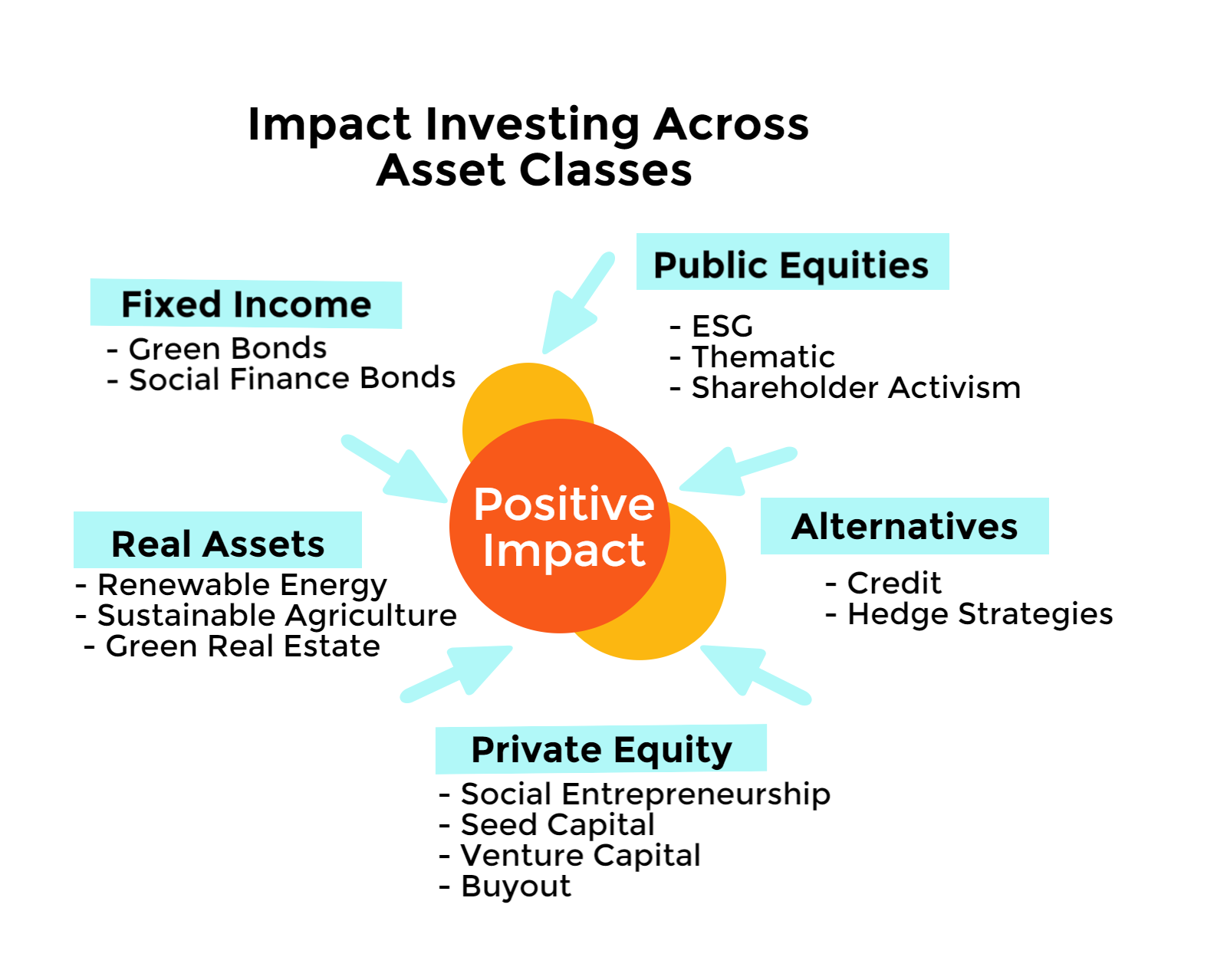
For example, one financial investment in a dairy farm needed a round of riskier seed investment prior to becoming ideal to traditional investors (Tyler Tivis Tysdal). How impact investing can reach the mainstream Phase two require skills in stabilizing financial returns with social impact, in addition to the stamina to devote to and measure the dual bottom line.
We make every effort to supply individuals with specials needs equivalent access to our site. If you would like info about this material we will enjoy to work with you. Please email us at: McKinsey_Website_Accessibility@mckinsey.com!.?.! Core impact investors were the first investors in 56 percent of all offers( Exhibit 2) and in 8 of the leading 10 microfinance institutions in India. Traditional PE and VC funds brought larger pools of capital, which accounted for about 70 percent of initial institutional funding by value. This is particularly essential for capital-intensive and asset-heavy sectors such as clean energy and microfinance. In general, mainstream funds contributed 48 percent of the capital throughout sectors( Exhibit 3). If you would like details about this content we will be happy to work with you. Please email us at: McKinsey_Website_Accessibility@mckinsey (Tyler T. Tysdal).com!.?.! Club deals that integrate impact investors and standard PE and VC funds contributed 32 percent of capital and highlight the complementary role of both kinds of investors. As business fully grown and impact investors stay involved, they are able to draw in funding from traditional funds. Nonprofits have generally been active longer than impact business and have actually developed economical systems for providing product or services and executing service plans. Impact investors could.
be seen as strategic investors in nonprofits, which in turn contribute in scale-up, talent tourist attraction, and the delivery of monetary and operating leverage. Impact financial investments touched the lives of 60 million to 80 million individuals in India. That’s comparable to the population of France, a figure that is much higher than the proverbial drop in the ocean numerous.
Creek Family Offices
think of impact financial investment to bemore like a small sea. To be sure, India has huge populations of individuals in need. As investors reconsider their understanding of impact investing, the capital commitments they make make sure to broaden. That will certainly provide new obstacles. However our research study suggests that this nascent property class can fulfill the financial obstacles in addition to accomplish the social returns sought by service providers of capital internationally.( Source: Mission Investors Glossary, unless otherwise noted )A benefit corporation is a new class of corporation that willingly meets greater standards of corporate purpose, accountability and openness. A benefit corporation has a corporate purpose to create a material positive influence on society and the environment; to consider the impact of its decisions, not only on shareholders, however likewise on workers, community and the environment; and to report annually on its general social and ecological performance against a 3rd celebration requirement. A business design that integrates a revenue-generating organisation with a part which creates social-value; coined by Jed Emerson and sometimes utilized interchangeably with triple bottom line and social enterprise; often referred to as combined return or blended financing. Return on an investment that compromises some monetary gain to attain a social benefit( Source: SSIR ). Investments that deliver financial returns and social and/or ecological impact. Elements which social investors might think about as part of their investment analysis as a way to evaluate whether their investments promote sustainable, reasonable and reliable practices and mitigate potential threats; ESG might be referred to as” ESG financial investments “or “responsible investing.”: An investment developed to lead to positive social or environmental advantages while producing monetary returns that are similar to comparable standard instruments. Tyler Tivis Tysdal.
-
How Does A Private Equity Firm Increase Business Value?
Entering into private equity directly after an MBA is almost difficult unless you have actually done investment banking or private equity before the MBA. You could finish the MBA, utilize it to win a full-time financial investment banking job, and then hire for private equity functions, but that’s even more challenging than breaking in pre-MBA from investment banking.
Leading qualifications (grades, test scores, and university track record); A lot of and interview preparation; Something that makes you appear to be a human rather than a robotic; The capability to about companies and investments rather than just “selling” them. A strong with the firm PE firms are much smaller sized than banks, so “fit” and soft abilities are a lot more crucial.
Like financial investment banks, Private Equity companies normally have a relatively stiff seniority structure with huge distinctions in experience level and duties from top to bottom. In general the senior-most specialists are accountable for deal sourcing, relationship management, and investment choice making, while the junior-most specialists bring the brunt of the analytical work.
This is, at least in part, because Private Equity companies tend to be much smaller than investment banking divisions at significant banks. As a result, junior experts will tend to have a lot more interaction with senior specialists, fostering a lot more chance to work straight with and learn straight from the most experienced experts in the firm.
The associate handles most of the financial modeling and preliminary due diligence for financial investment chances, while helping with the management and tracking of portfolio business as well as sourcing offers and supporting transactions. More day-to-day information on the partner’s function are offered later on in this guide. A majority of Pre-MBA partners (specifically in the United States) are hired for a two-year to three-year program. (Such a change would be sped up if the United States and other governments followed the lead of European nations in leveling the tax playing field.) Public companies might then gain from the chances afforded by a buy-to-sell strategy. Investors would benefit, too, as the higher competition in this space would create a more efficient marketone in which private equity partners were no longer so highly preferred over the investors in their funds.
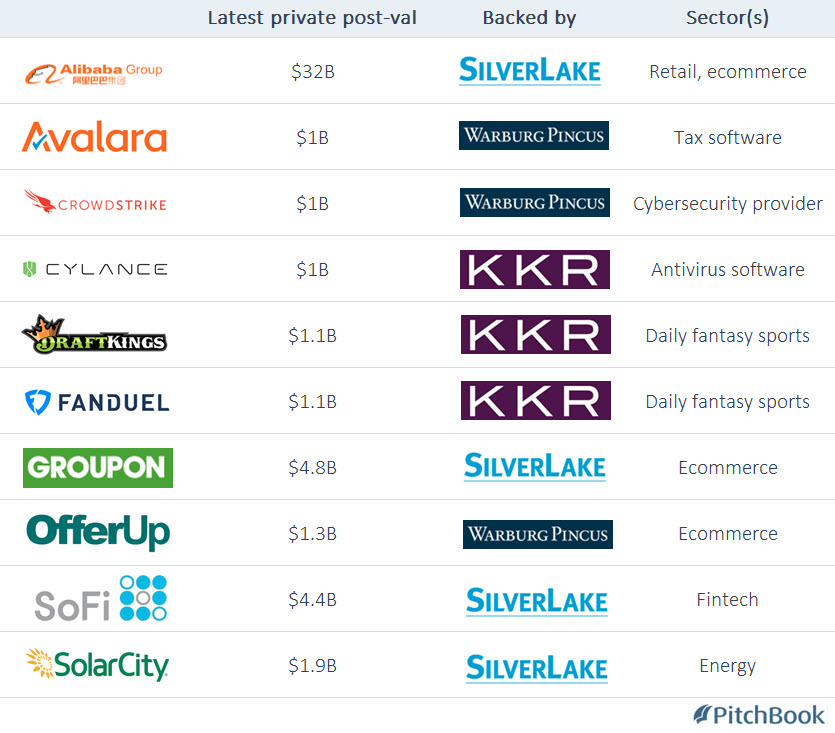
You’ve most likely become aware of the term private equity (PE). Approximately $3.9 trillion in possessions were held by private equity companies since 2019, which was up 12.2 percent from the year before. Investors look for private equity funds to earn returns that are much better than what can attained in public equity markets. https://player.vimeo.com/video/445058690
Read on to learn more about private equity consisting of how it develops value and some of its essential strategies. Private equity refers to capital expense made into business that are not openly traded. The majority of private equity firms are open to recognized investors or those who are deemed high-net-worth, and successful private equity managers can make countless dollars a year.
Work With A Private Equity Firm – Dealforce
Private equity is ownership or interest in an entity that is not publicly noted or traded. A source of financial investment capital, private equity originates from high-net-worth people and firms that purchase stakes in private companies or obtain control of public companies with strategies to take them private, eventually delisting them from stock market (titlecard capital fund).


Due to the fact that private equity involves direct investmentoften to acquire influence or control over a business’s operationsa considerable capital investment is needed, which is why funds with deep pockets dominate the market. The minimum amount of capital required for certified investors can vary depending on the firm and fund. Some funds have a $250,000 minimum entry requirement, while others can need millions more.
Partners at private-equity firms raise funds and manage these cash to yield favorable returns for shareholders, generally with an financial investment horizon of between four and seven years. The private equity business draws in the very best and brightest in corporate America, including leading entertainers from Fortune 500 business and elite management consulting firms.
The fee structure for private-equity companies differs however typically includes a management and efficiency charge. An annual management charge of 2% of possessions and 20% of gross earnings upon sale of the company prevails, though incentive structures can vary significantly (securities fraud racketeering). Considered that a private-equity firm with $1 billion of possessions under management (AUM) may run out than 2 lots financial investment specialists, and that 20% of gross earnings can generate tens of millions of dollars in fees, it is easy to see why the market brings in top skill.

Principals, on the other hand, can earn more than $1 million in (recognized and latent) settlement each year. Private-equity firms have a series of investment preferences. Some are rigorous financiers or passive investors entirely depending on management to grow the business and produce returns. Due to the fact that sellers usually see this as a commoditized technique, other private-equity companies consider themselves active investors.
Active private equity companies might have a comprehensive contact list and C-level relationships, such as CEOs and CFOs within a provided industry, which can help increase earnings. They may likewise be experts in recognizing operational effectiveness and synergies. If a financier can bring in something special to an offer that will enhance the company’s worth over time, they are more most likely to be viewed favorably by sellers.
It is no surprise that the largest investment-banking entities such as Goldman Sachs (GS), JPMorgan Chase (JPM) and Citigroup (C) often help with the biggest deals – racketeering conspiracy commit. When it comes to private-equity companies, the funds they offer are just available to certified investors and might only enable a restricted variety of investors, while the fund’s founders will frequently take a rather big stake in the firm as well.
Private Equity Firms Start To Outline Pandemic Impact
For example, the Blackstone Group (BX) trades on the New York Stock Exchange (NYSE) and has actually been involved in the buyouts of business such as Hilton Hotels and MagicLab. Private-equity companies carry out 2 critical functions: offer origination/ deal executionportfolio oversight Offer origination includes developing, keeping and developing relationships with mergers and acquisitions (M&A) intermediaries, investment banks, and comparable transaction professionals to protect both high-quantity and top quality offer circulation.
Some companies work with internal staff to proactively determine and reach out to business owners to produce transaction leads. racketeering conspiracy commit. In a competitive M&A landscape, sourcing proprietary offers can help ensure that funds raised are successfully deployed and invested. Additionally, internal sourcing efforts can lower transaction-related expenses by eliminating the investment banking middleman’s fees.
As such, deal origination specialists attempt to develop a strong rapport with transaction specialists to get an early introduction to an offer. It is necessary to note that financial investment banks typically raise their own funds, and for that reason may not just be a deal recommendation, but also a completing bidder. Simply put, some financial investment banks take on private-equity companies in buying up excellent business.

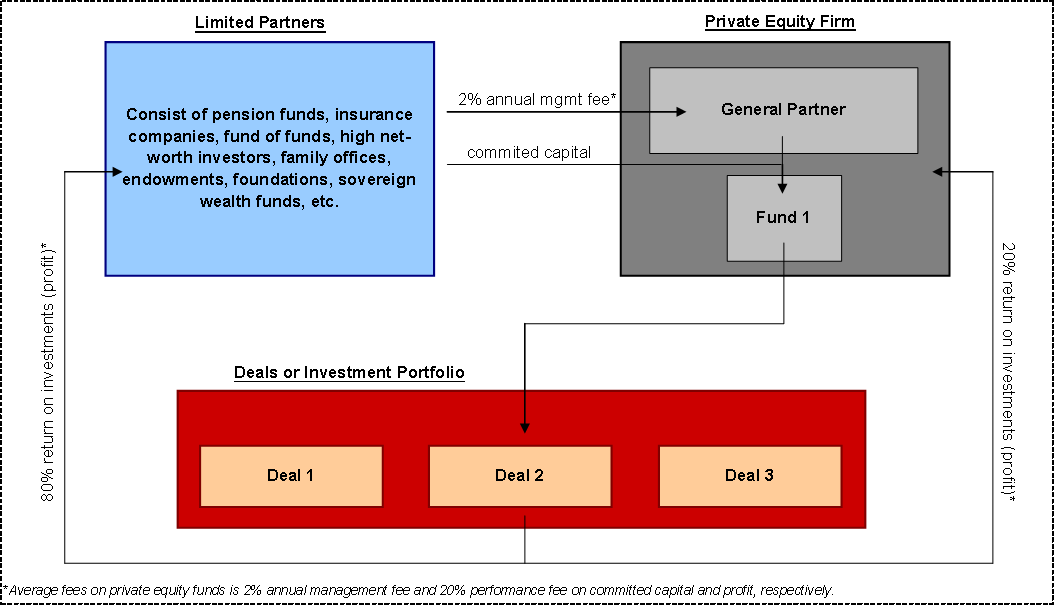
Particular funds can have their own timelines, investment goals, and management viewpoints that separate them from other funds held within the exact same, overarching management firm. Effective private equity firms will raise many funds over their lifetime, and as companies grow in size and complexity, their funds can grow in frequency, scale and even uniqueness. To get more info regarding fund managers and also - research the videos and -.
Tyler Tysdal is a long-lasting entrepreneur assisting fellow entrepreneurs offer their company for optimum worth as Managing Director of Freedom Factory, the World’s Best Business Broker located in Denver, CO. Freedom Factory assists entrepreneurs with the greatest deal of their lives.
After the financial investment committee indications off to pursue a target acquisition candidate, the offer professionals submit an offer to the seller. If both parties choose to move on, the offer professionals work with various deal advisors to include financial investment lenders, accountants, legal representatives and specialists to execute the due diligence phase.
This part of the procedure is vital, as specialists can reveal deal-killers, such as significant and previously concealed liabilities and threats. There are a lot of private equity investment strategies – grant carter obtained. Two of the most typical are leveraged buyouts and venture capital financial investments. Leveraged buyouts are precisely how they sound. A target firm is bought out by a private equity firm.
The acquirer (the PE firm) seeks to purchase the target with funds gotten through the usage of the target as a sort of collateral. In a leveraged buyout, getting PE firms have the ability to purchase business with only needing to install a fraction of the purchase cost. private equity fund. By leveraging the investment, PE companies intend to optimize their possible return.
PE companies will typically see that potential exists in the market and more significantly the target firm itself, and often due to the absence of revenues, capital and debt financing readily available to the target. civil penalty $. Companies have the ability to take considerable stakes in such companies in the hopes that the target will develop into a powerhouse in its growing industry.
The Pros And Cons Of Having Private Equity Firms
Oversight and management comprise the second essential function of PE professionals. To name a few assistance work, they can stroll a young business executive personnel through best practices in strategic preparation and monetary management. In addition, they can assist institutionalise new accounting, procurement, and IT systems to increase the worth of their investment.
-
Is Your Business Ready For The Demands Of Private Equity?

This might be apparent from the staff member backgrounds (i.e. bulge brackets, technical degrees, and so on). In this case you must stress this skillset. Some other funds might look for more “simple” mindsets specifically as you decrease in financial investment size, and once again this might be evidenced by the dress code, more diverse backgrounds (i.e.
The reality is that you are able to anticipate with a fantastic degree of certainty a minimum of 80% of the interview concerns. For that reason, stopping working to give a clear and straight answer to questions about your deals, your CV, why private equity, why this particular fund, and so on is normally not well gotten.
Numerous funds like to put prospects under pressure, and screening numerical abilities are an excellent way to do this. Arithmetic concerns, brainteasers, doing basic LBO modelling in your head and converting Cash on Cash returns toIRRs must be something you are extremely comfortable with. If not – do practice! Also, when asked technical concerns or mathematical questions, it is definitely fine to take a little time to respond to.
While all of the above errors involve some lack of preparation, another warning in private equity interviews is overconfidence and conceit, which can really be fairly typical in interviews. Make certain that you are not leaning back on your chair, o not be overfriendly with the senior members of the group, and, at all times, make sure that you show that you are very keen to get the task.
Nevertheless, there are some significant distinctions in skillset and culture in between those 2 professions. Often, private equity companies would like to work with lenders “early,” i – loans athletes sports.e. after one or two years’ experience at an investment banks. The factor is that those firms are often scared that a prospective hire who has actually invested too much time in investment banking will get a “banker frame of mind”.
A lot of investment bankers tend to be deal-driven. The “cravings” to close many big deals is really a weak point in private equity since it’s not about creating charges any longer. Private equity experts require to do great offers and be ready to step back even after months of effort if the offer will not create enough returns.
Private equity is not betting or even equity capital investing in which you would normally anticipate a few losses. Private equity is about generating consistent high returns with minimum risk. While the pay may be a bit higher or lower in PE (depending upon the fund size), the cash is made from the “bring”, i.e. securities fraud theft.
Business Development In Private Equity – The Rise Of The Deal
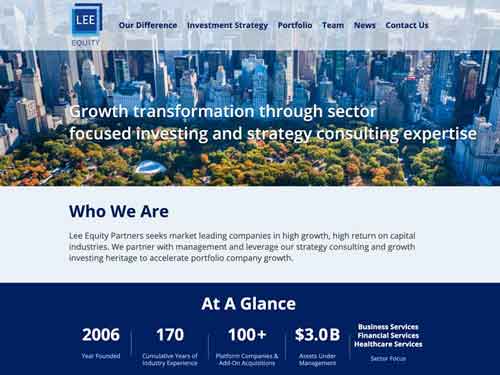
This bring is made in time, so it doesn’t make good sense to jump from one place to another anymore – securities exchange commissio. A bad year in banking may trigger you to alter your company, however a bad year in private equity will just be a truth of life and you require to take a more long-term view.
While lots of lenders are excellent at modelling, private equity modelling tends to be much more comprehensive and focus on entirely various problems. Modelling in private equity typically depends upon designing the optimal capital structures (debt/equity) and also the incentive structures (choice shares, benefits, management equity, and so on). The modeling tends to be much more intricate and in-depth, so presumptions in your operating design will be challenged by the team and due diligence advisors.

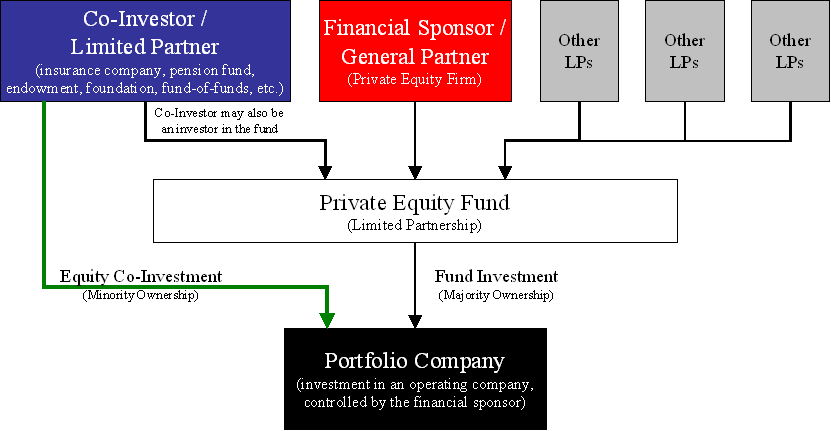
Particular funds can have their own timelines, investment goals, and management philosophies that separate them from other funds held within the very same, overarching management firm. Successful private equity companies will raise many funds over their lifetime, and as firms grow in size and complexity, their funds can grow in frequency, scale and even specificity. For more information about securities exchange commission and - visit his websites and -.
In 15 years of handling properties and backing numerous business owners and financiers,Tyler Tysdal’s companies co-managed or handled , non-discretionary, approximately $1.7 billion in properties for ultra-wealthy households in industries such as health care, oil and gas , real estate, sports and home entertainment, specialized lending, spirits, technology, durable goods, water, and services companies. His team advised clients to invest in almost 100 entrepreneurial business, funds, private loaning deals, and real estate. Ty’s track record with the private equity capital he released under the very first billionaire customer was over 100% annual returns. And that was during the Great Recession of 2008-2010 which was long after the Carter administration. He has produced numerous millions in wealth for clients. Nevertheless, given his lessons from dealing with a handful of the certified, extremely sophisticated people who could not seem to be pleased on the advantage or understand the potential drawback of a deal, he is back to work exclusively with business owners to assist them sell their companies.
Being innovative and entrepreneurial are extremely preferable characteristics for a lot of PE funds. Finding deals, networking, creating originalities, and considering all kinds of dangers and chances around deals and business can make a significant difference to the profitability of the firm. Also, private equity specialists require to understand the in-depth elements of supervising business; therefore professionals with some start-up or entrepreneurial experience are valued because they understand all of those crucial information. invested $ million.
Even if you go to a smaller firm, you will still work a great 60+ hours per week and your schedule will stay somewhat unforeseeable due to due diligence meetings, management conferences, and other deal-related, last-minute demands. While the way of life is better, you’re still working in a deal-driven environment. The base income and bonus offer structure might not vary that much from that in banking, however the cash in private equity is made when a fund closes and when exits are made.
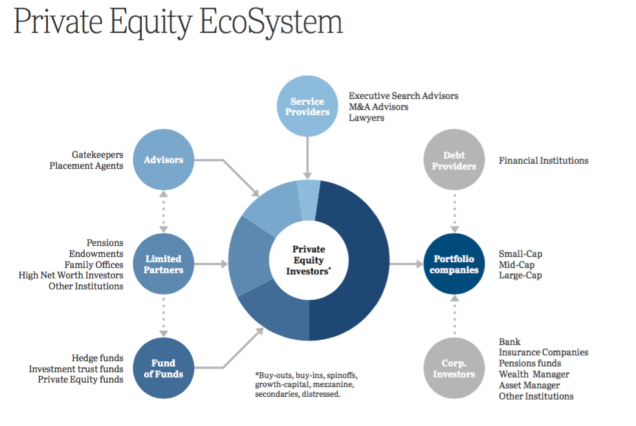
What matters most now is the fund performance, not your own private accomplishment. You may have developed the very best designs and dealt with the biggest offers, but if the returns are not there, you will not get paid. The amount of grunt work absolutely reduces in private equity. There are fewer administrative jobs, printing of books, and numerous people-intensive tasks can be contracted out to banks and advisors.
reviewing NDAs, term sheets) and making presentations to the financial investment committee. Discovering deals is something totally new for financial investment lenders. While you will not be expected to bring deals right away, ultimately the staff member will expect you to be able to build relationships with lenders and screen through the deals to discover some that are appealing, and likewise to cold call or approach business straight.
Social life in financial investment banking can really be rather amazing. You’re operating in companies with countless staff members; there are many peers to go over and to share your war stories with, junior lenders are normally all below 30 and there is a work hard/play tough mindset. Also, the turnover is rather high in banks; new analyst and associate classes arrive every year, so it can be a really revitalizing environment.
The Strategic Secret Of Private Equity

Teams are little (possibly 10 to 30 people), a number of the partners and senior investors are much older, and individuals don’t truly move upward or downward. Considering that the normal profiles of private equity experts tend to be rather “basic” (i.e. top school, investment banking/strategy consulting background, etc.), therefore social life tends to be less enjoyable. https://www.youtube.com/embed/WhJVIagxxwk
Interaction abilities and individual skills are very essential in private equity. You can be a top modeller and be exceptionally dedicated. Nevertheless, to convince the financial investment committee, get people in the firm to support you, get the management team to work with you, and find out the finest deals from the intermediaries, you will require for individuals to like you – investment fund manager.

Cv 1 Test Cv 1 Test Cv 1 Test Cv 1 Test Cv 1 Test Cv 1 Test Cv 1 Test Cv 1 Test Cv 1 Test Cv 1 Test Cv 2 Test Cv 2 Test Cv 2 Test Cv 2 Test Cv 2 Test Cv 2 Test Cv 2 Test Cv 2 Test Cv 2 Test Way Of Life 1 Way Of Life 1 Way of life 1 Way of life 1 Lifestyle 1 Way of life 1 Lifestyle 1 Way Of Life 1 Profession Avcice 1 Career Advice 1 Profession Avcice 1 Career Advice 1 Profession Avcice 1 Books 1Books 1Books 1 Books 1Books 1Books 1 Books 1Books 1Books 1 Books 2 Books 2 Books 2 Books 2 Books 2 Books 2 Questions 1 Questions 1 Questions 1 Questions 1 Questions 1 Questions 1.